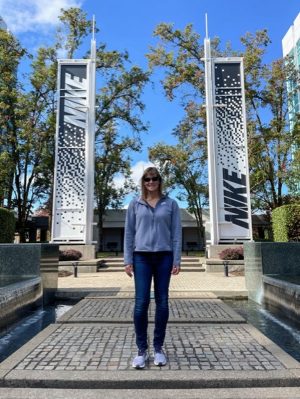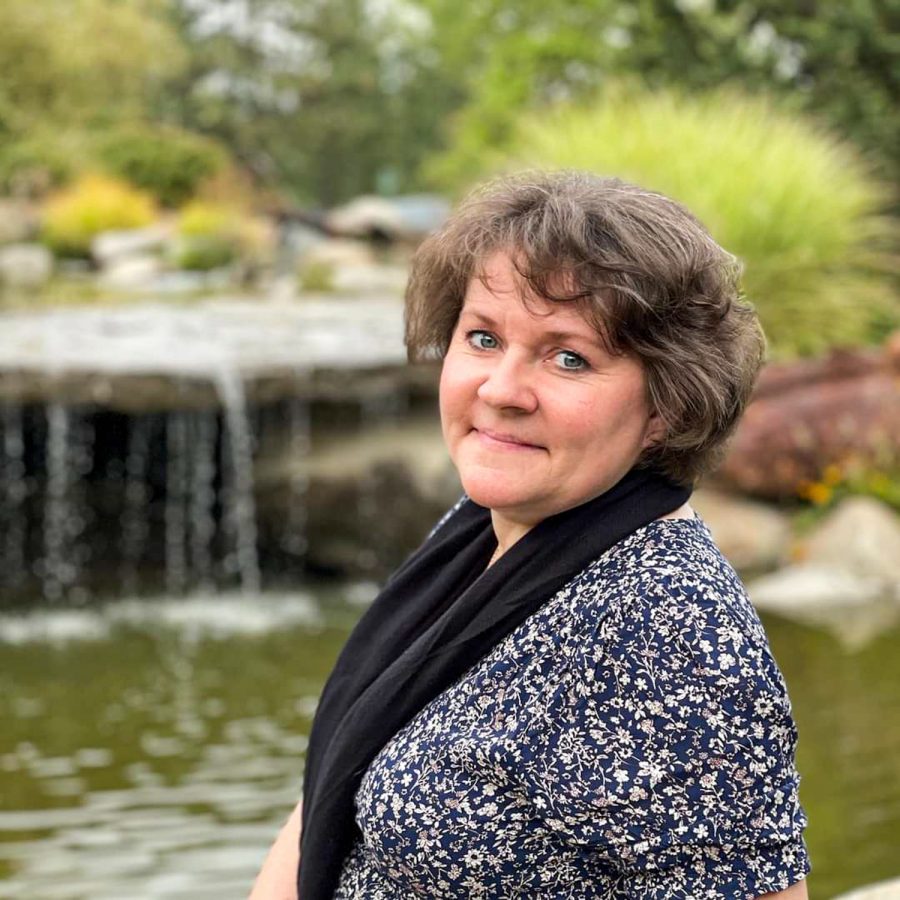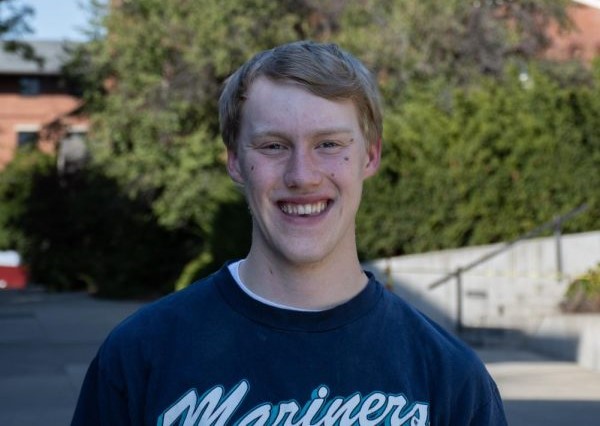Murrow College launches first-generation mentoring program
Program focuses on connecting students with Murrow alum to set them up for career success
Sara Stout, director of student services for the Edward R. Murrow College of Communication, created the Murrow First Mentoring Program.
December 2, 2021
The WSU Edward R. Murrow College of Communication shifted its mentoring program this semester to focus on first-generation college students.
The newly named Murrow First program aims to assist first-generation students and help them navigate college and the early stages of their career in the communication field, said Sara Stout, Murrow College director of student services and Murrow First chair.
Stout said she made the decision to focus on first-generation students because she wanted to offer mentoring services to a population that normally would not take advantage of such a service.
Many first-generation students do not focus on themselves as traditional students might. This is caused by a variety of reasons, such as the need to work while in school or support a family, Stout said. Many first-generation students are nontraditional. They might be older than the typical college student or have a family to support.
Stout said she herself was a first-generation college student.
“I didn’t take advantage of [the resources of college] because my focus was on finishing the degree and on my family,” she said.
Many leaders in the Murrow College were first-generation students, Stout said. Bruce Pinkleton, professor and Murrow College dean, was a first-generation student, as was Stacey Hust, associate dean of faculty affairs and college operations.
There are 37 mentors and 40 students involved in the program. All four Murrow campuses are represented with three students from WSU Everett, six from WSU Global, two from WSU Vancouver and 29 from WSU Pullman. Each are sophomores or above, but most are juniors or seniors, she said.
Stout said she would love to see the program develop from not only offering traditional mentorship but also giving mentees access to opportunities outside of campus such as industry tours in different cities. She would also like to see more alumni involved as mentors and more first-generation students gaining the benefits of the program.
Stout reached out to about 300 first-generation students currently enrolled in the Murrow College. All 40 students who applied joined the program and received a mentor, Stout said.
One of the program’s mentors is Murrow alum Marcia Steele Hoover.
“[Steele Hoover is] a champion of the program,” Stout said.
Steele Hoover is in her sixth year as a Murrow mentor and recently retired from a career as the corporate communications lead at Nike. She currently serves on the Murrow Professional Advisory Board and as the mentoring committee chair, Stout said.
Steele Hoover said she got involved as a mentor because she wanted to give back to the university and help students succeed in and immediately after college.
“There is nothing more rewarding than when that student lands a job and is just stoked about what they are going to be doing, and you know that you helped contribute to their future,” she said.
One of Steele Hoover’s mentees landed a job at the advertising firm Wieden+Kennedy straight out of college.
“That is the pinnacle of success of the Murrow program,” she said.
As a mentor, Steele Hoover said she meets with her mentee regularly over Zoom.
“Mentorship isn’t simply … telling a student what to do. It’s learning from them and it’s helping them learn for themselves,” she said. “I should learn from my mentee as much as they learn from me.”
Steele Hoover’s philosophy as a mentor is to seek first to understand a student’s unique perspective.
In preparation for the transition to serving first-generation students through the mentoring program, mentors participated in a series of workshops focused on first-generation college students. The mentors learned about the various situations that first-generation students could be in and the best ways to support them on their college journey, Stout said.
Because of the stereotypes around first-generation students, if mentors wish to best serve their mentees, they need to truly get to know them as a person, Steele Hoover said.
“I think we’d be doing a disservice to [first-generation students] if we went into the relationship presuming that they were a certain person,” she said. “We should go into those relationships with a ‘seek first to understand’ mentality.”
Steele Hoover met with her student twice within the first several weeks of the first-generation program.

Marcia Steele Hoover serves as the mentoring committee chair and is in her sixth year as a Murrow mentor. She retired this year after serving as a marketing communications leader at Nike.
“I want my mentee to know that when they come out of it they are going to have assets that are very specific and tangible,” she said.
One of the tangible things Steele Hoover seeks to give students is the wisdom she earned from her successful career at Nike, she said.
“So many people always wait for the big moment and they forget about celebrating little things and recognizing little bright spots and good things that happen along the way,” she said. “There are people who say that your glass is half full or half empty; my perspective is I’m happy to have a glass.”
Steele Hoover hopes to help students think two steps ahead, taking each step in their career with their next step already in mind, she said.
“My hope is that the Murrow First program will grow in size with more mentors and more students, and then there will be more opportunities for experiential learning, scholarships, things like that,” Stout said.
Steele Hoover praised Stout for leading the Murrow Mentoring program through the transition to a first-generation focus.
“I’m just really proud of the program and so very honored to be able to really … bring it to life,” Stout said.










